The College of Agriculture and Natural Resources (CANR) has planted over 2,000 cassia trees at Ejisu-Kwamo in the Ashanti Region as part of the national Tree for Life programme.
This initiative forms part of ongoing efforts to promote environmental sustainability and contribute to the national reforestation agenda. Speaking at the event, the Dean-elect of the Faculty of Renewable Natural Resources, Professor Emmanuel Acheampong, emphasized the College’s commitment to environmental conservation.
Speaking at the event, the Dean-elect of the Faculty of Renewable Natural Resources, Professor Emmanuel Acheampong, emphasized the College’s commitment to environmental conservation.
“We are here today to contribute to the national aspiration of greening the country,” he said. “We don’t just plant and leave the trees; every year, we undertake this exercise and monitor its growth,” he stated.
Prof. Acheampong further explained that the exercise also serves academic purposes.
“We’re establishing an experimental site where our students can carry out practical experiments. Climate change remains a major concern, and trees play a vital role in mitigation and adaptation efforts.
Cassia is a very good specie for charcoal production so our idea is to establish the cassia woodlot so that we can use it to demonstrate how to produce charcoal sustainably.,” he noted.
“People should be encouraged to establish their own woodlots for sustainable charcoal production. If we don’t act now, we’ll continue to depend unsustainably on natural forests,” he stressed.
“It’s not just about planting the trees. The outcomes of tree planting, restoring ecosystems, protecting water bodies, and creating opportunities for the future, are even more important.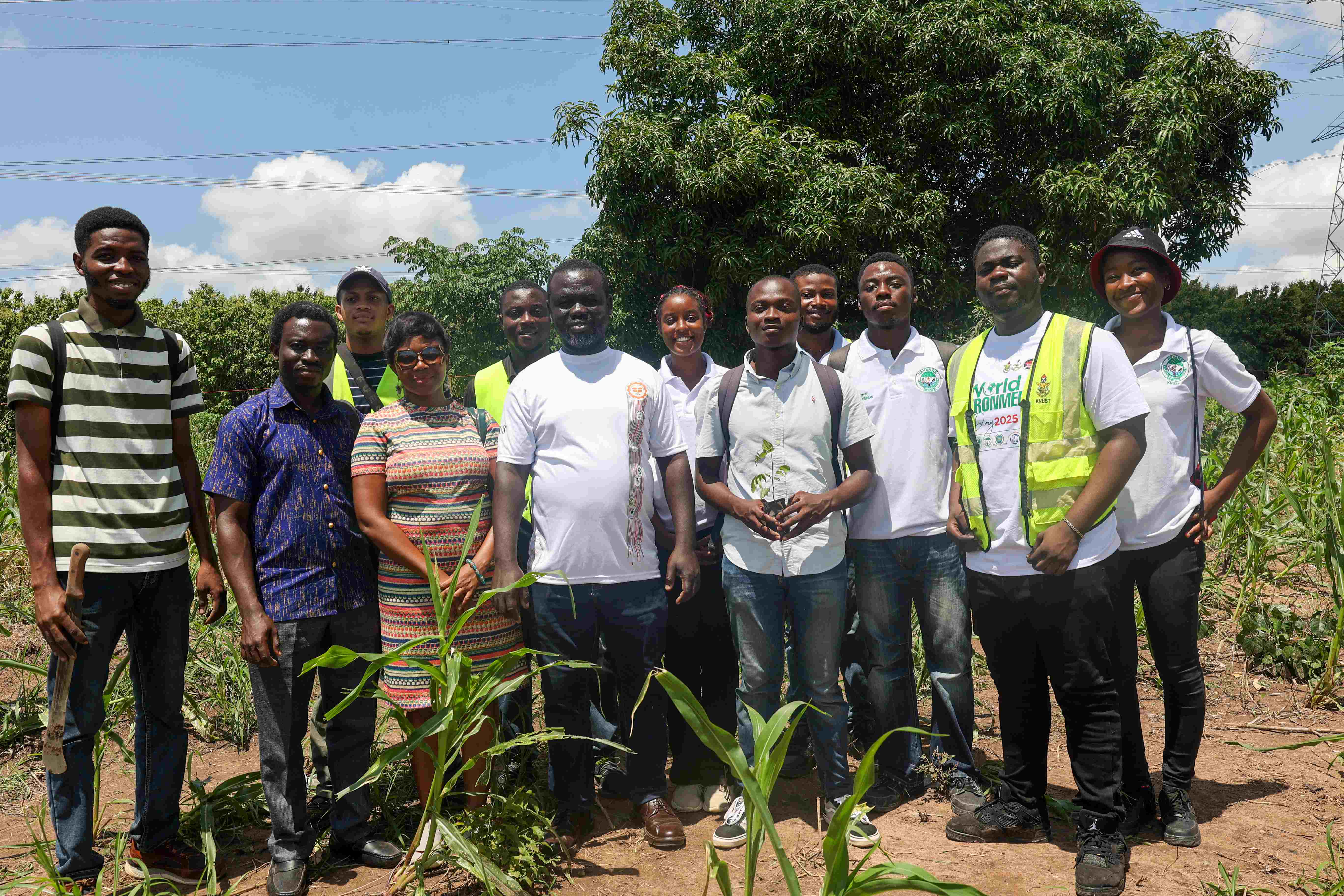 It is our believe that as we start this process, on voluntary bases, people can also get into it as a means of generating businesses for the youth through the processes of raising nurseries and the planting exercises,” Vice Dean of the faculty, Prof. Kojo Agyapong Afrifah added.
It is our believe that as we start this process, on voluntary bases, people can also get into it as a means of generating businesses for the youth through the processes of raising nurseries and the planting exercises,” Vice Dean of the faculty, Prof. Kojo Agyapong Afrifah added.
Dr. Abubakar Nantogma, President of the Ghana Institute of Foresters, also underscored the urgency of restoring degraded landscapes.
“For the past two decades or more, forest degradation has occurred at an alarming rate, negatively affecting biodiversity, water security, and rural livelihoods. We must reverse this trend by planting more trees and nurturing them to maturity,” he said.
affecting biodiversity, water security, and rural livelihoods. We must reverse this trend by planting more trees and nurturing them to maturity,” he said.
Students who participated in the exercise also shared their experiences, expressing enthusiasm about contributing to environmental sustainability while gaining hands-on learning opportunities.

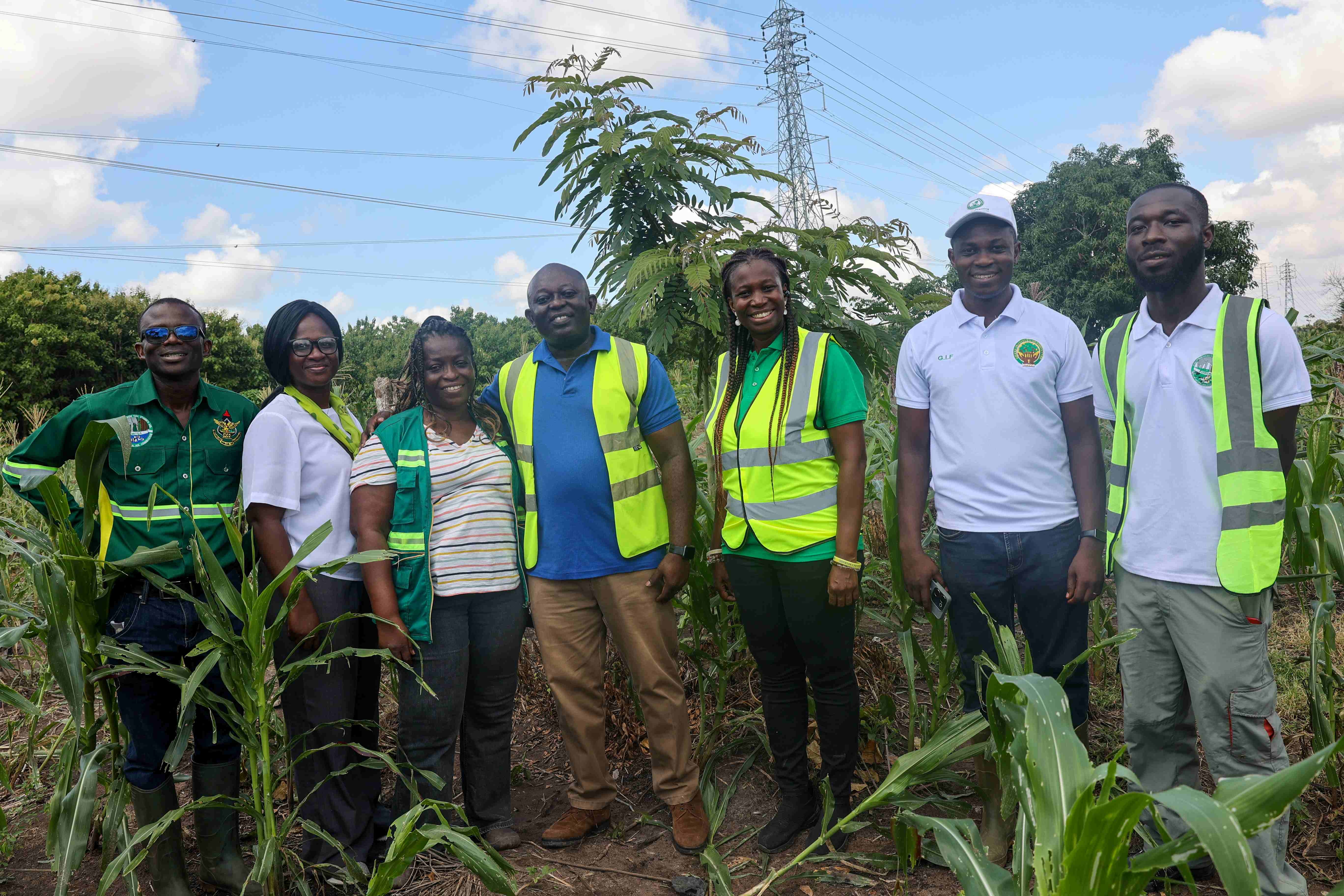
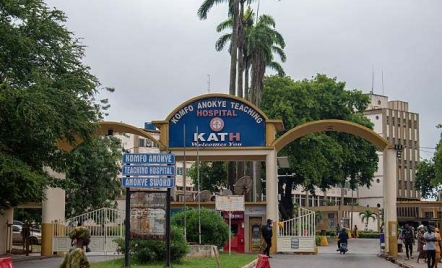
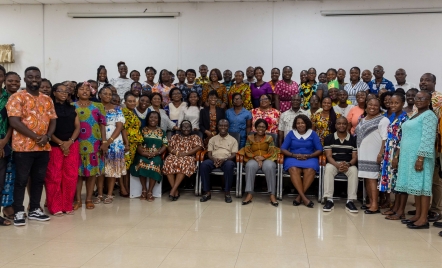

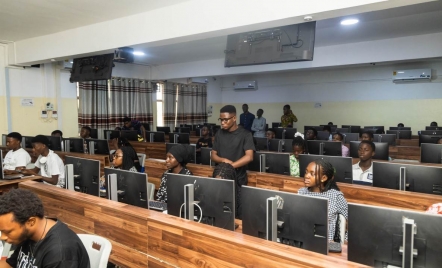
Comments